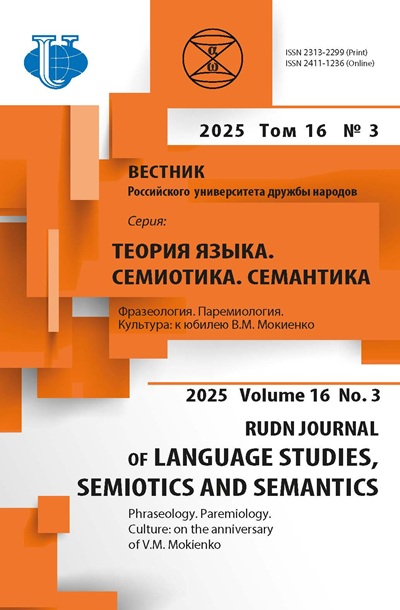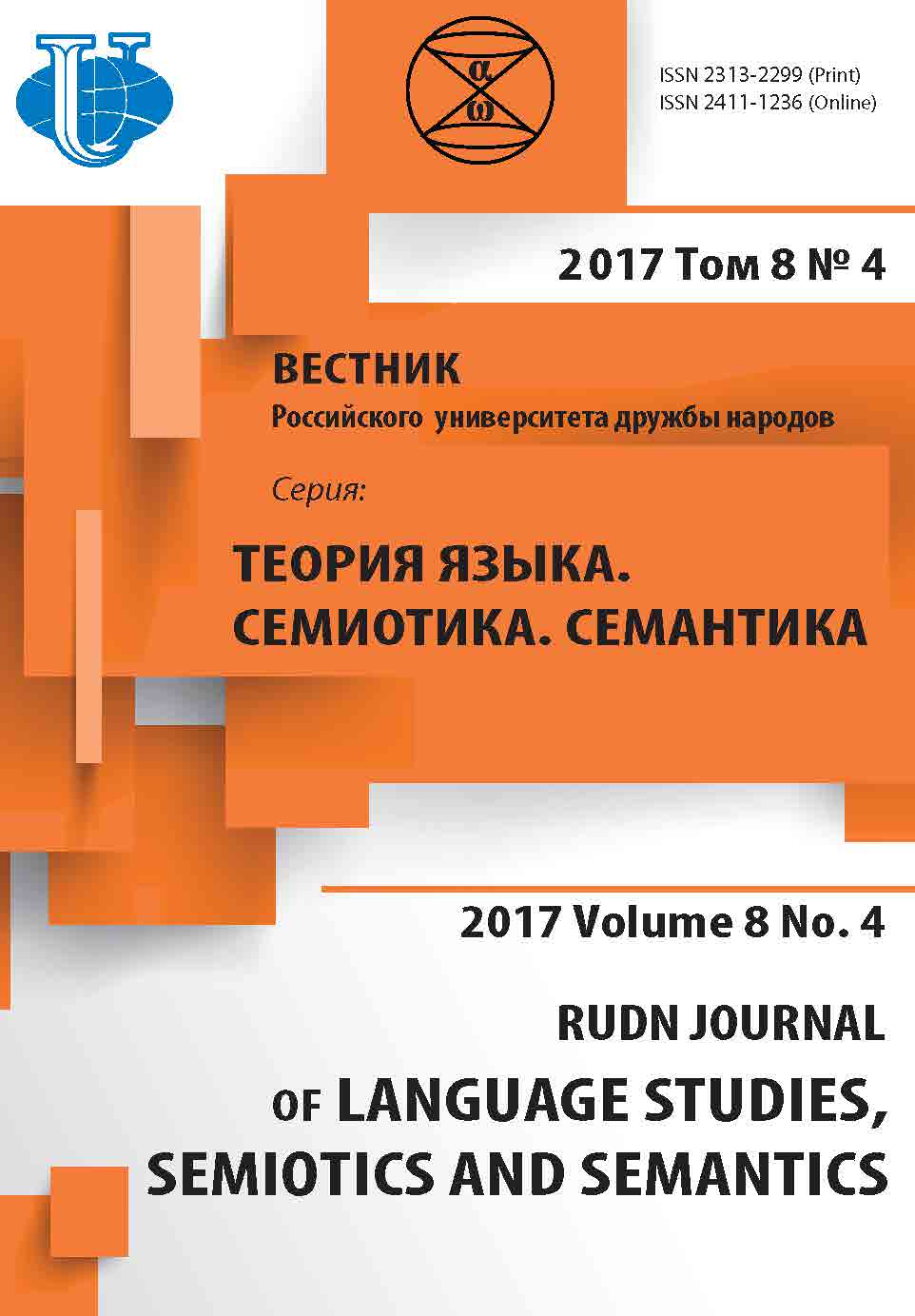ЭТИКЕТНАЯ ЛЕКСИКА КАРАКАЛПАКСКОГО ЯЗЫКА
- Авторы: Наурызова АК1
-
Учреждения:
- Каракалпакский научно-исследовательский институт гуманитарных наук Каракалпакского отделения Академии наук Республики Узбекистан
- Выпуск: Том 8, № 4 (2017)
- Страницы: 999-1004
- Раздел: СТАТЬИ
- URL: https://journals.rudn.ru/semiotics-semantics/article/view/17979
- DOI: https://doi.org/10.22363/2313-2299-2017-8-4-999-1004
- ID: 17979
Цитировать
Полный текст
Аннотация
В статье рассматривается роль этикетных слов, которые характеризуют взаимоотношения коммуникантов, показывают их взаимосвязь и их стилистическое использование с фамилией и именем при обращении. Каждый народ в соответствии со своими национальными особенностями, национальной психологией формирует собственную группу этикетных слов, используемую с антропонимическим комплексом при обращении к человеку. Принадлежность к определенной социальной группе, национальности и народу, родоплеменная и государственная связь людей, влияние хозяйственных, политических или культурных факторов предлагают разным частям общества (мужчины, женщины, пожилые люди, молодежь, дети, сельские и городские жители) действовать по соответствующим правилам и порядку. Подобным образом появляется совокупность культуры действий, сформировавшихся в отношениях между людьми и сложившихся в определенную систему, в последнее время называющуюся термином этикет. Этикетная лексика современного каракалпакского языка составляет объект исследования; выявление роли использования единиц речевого этикета в формировании норм литературного языка, их рассмотрение в качестве основных признаков культурной речи, сопоставительное изучение особенностей речевого этикета с тюркскими языками в соответствии с внутренними закономерностями языка являются предметом исследования.
Ключевые слова
Об авторах
А К Наурызова
Каракалпакский научно-исследовательский институт гуманитарных наук Каракалпакского отделения Академии наук Республики Узбекистан
Автор, ответственный за переписку.
Email: shirazova@mail.ru
Наурызова Айсултан Калбаевна, старший научный сотрудник-исследователь Каракалпакского научно-исследовательского института гуманитарных наук Каракалпакского отделения Академии наук РУз; научные интересы: стилистика, этикет, культура речи
230100, Республика Каракалпакстан, г. Нукус, ул. Амира Тимура, 179 АСписок литературы
- Андреев В.Ф. Золотая книга этики. Москва: Вече, 2004.
- Сайымбетов О.Т. Қарақалпақ тилиндеги меншикли адам атлары. [Sobstvennoe imia sushchestvitel'noe v karakalpakskom iazyke]. Нөкис: Билим, 2000.
- Хамидов Х. Ес ки қарақалпақ тилиниң жазба естеликлери. [Pis’mennye pamiatniki starogo karakalpakskogo iazyka. [Written records of Old Karakalpak Language]. Нөкис: Қарақалпақстан, 1985.
- Формановская Н.И. Употребление русского речевого этикета. Москва, 1984.
Дополнительные файлы












